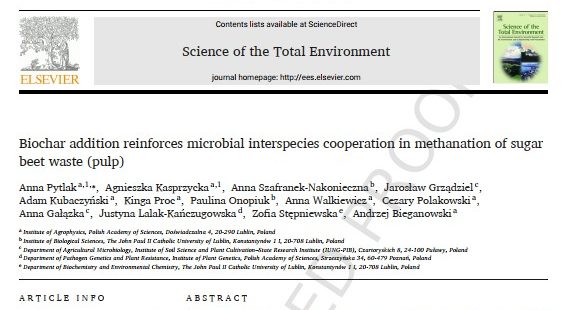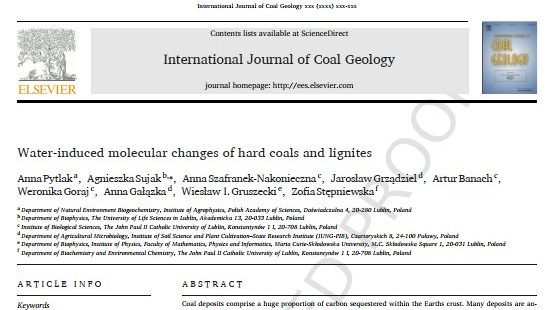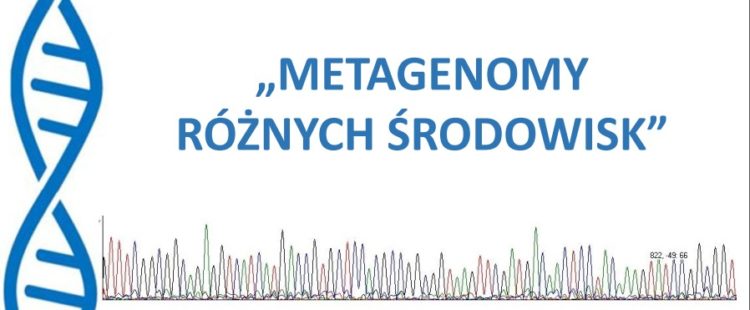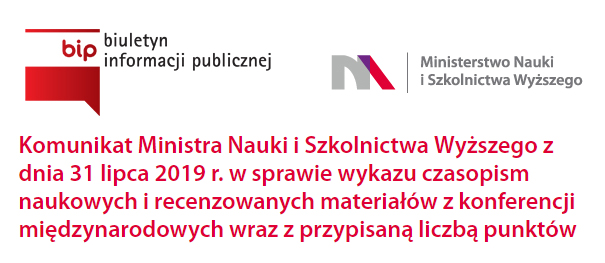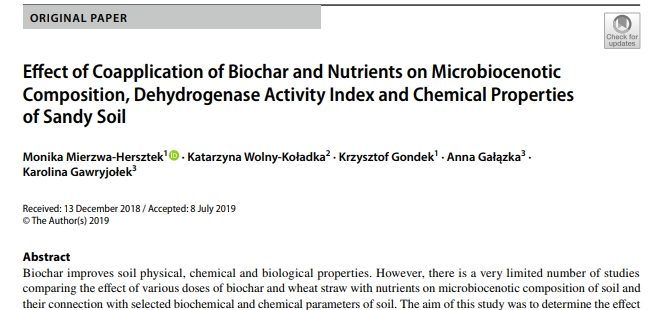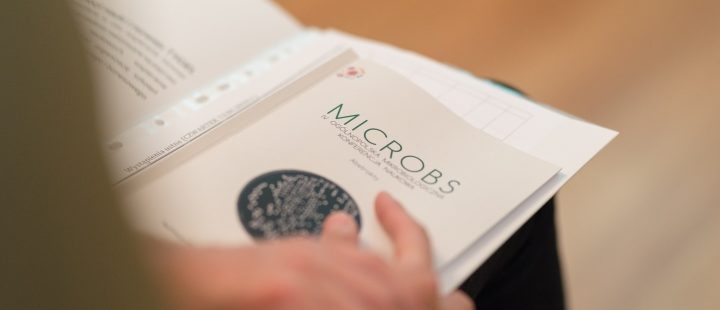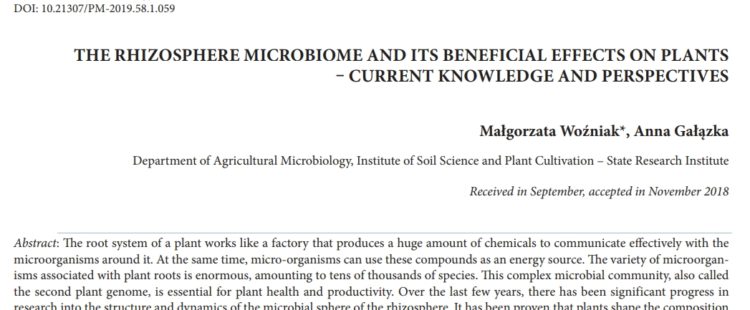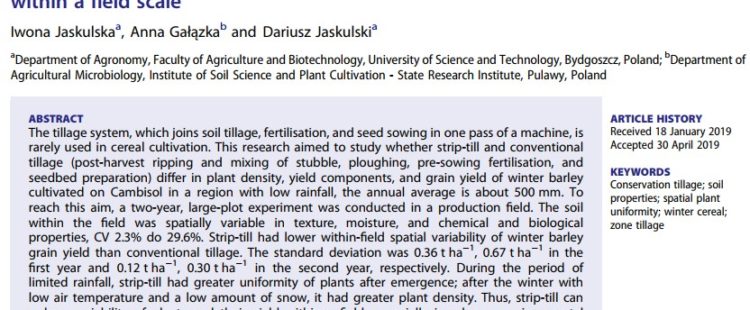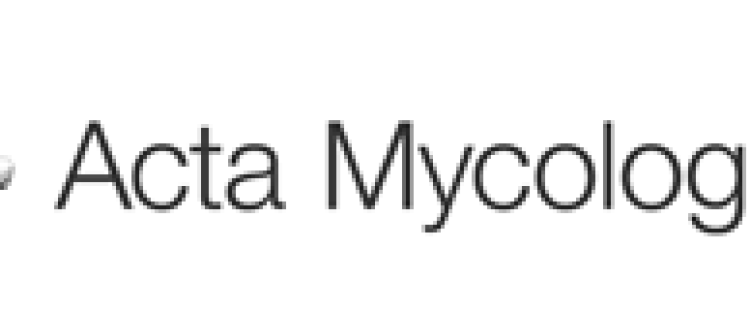Pytlak A., Kasprzycka A., Szafranek-Nakonieczna A., Grządziel J., Kubaczyński A., Proc K., Onopiuk P., Walkiewicz A.,Gałązka A., Lalak-Kańczugowska J., Stępniewska Z., Bieganowski A. (2020): Biochar addition reinforces microbial interspecies cooperation in methanation of sugar beet waste (pulp). Science of the Total Environment (200 pkt. MNiSW, IF = 5,589).
DOI: https://doi.org/10.1016/j.scitotenv.2020.138921
Abstract
Biogas production and microbial community structure were analyzed as an effect of biochar addition to a fermentation sludge containing sugar beet pulp. Positive effects of the treatment including an increase in process efficiency and better biogas quality were noted. The effect of biochar on AD (anaerobic digestion process) microbial communities was investigated after total DNA extraction from biochar-amended fermentation mixtures by PCR amplification of bacterial 16S rRNA gene fragments and Illumina amplicon sequencing. A combination of microbiological and physico-chemical analyses was used to study the mechanism by which biochar influences the process of anaerobic digestion of sugar beep pulp. It was found that the main reason of the changes in biogas production was the reshaping of the microbial communities, in particular enrichment of Bacteroidales and Clostridiales. It was proposed that biochar, in addition to being a conductor for mediating interspecies electron transfer, serves also as a habitat for hydrolytic bacteria. It was elucidated that the main driving force for the preferential colonization of biochar surfaces is its hydrophobicity. The presented research indicates the high potential of biochar to stimulate the methane fermentation process.
